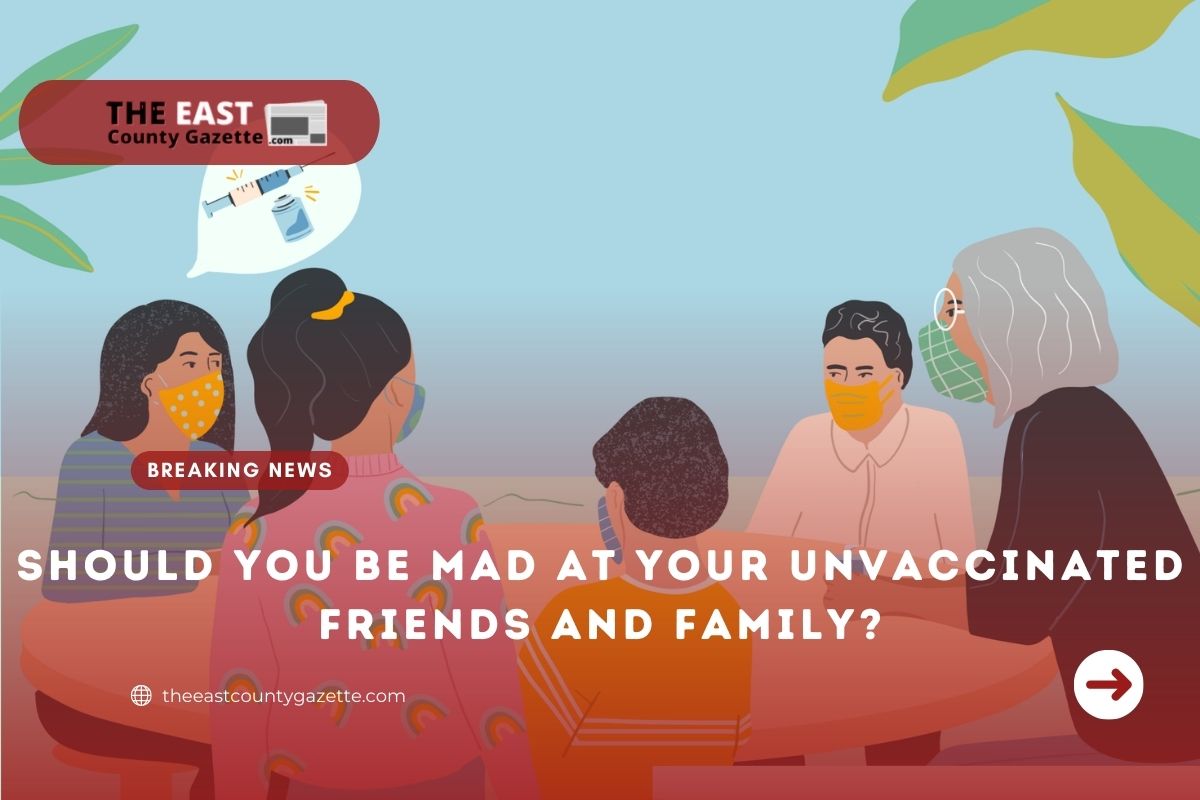Don’t we have a right to be angry with the unvaccinated? Could it even be justified to be angry?
It’s understandable to feel angry sometimes. Pandemics have been heavily frustrating. Children who cannot be vaccinated must be protected, including those in vulnerable groups.
Nonetheless, you are allowed to be frustrated and angry if you’ve done your part, like getting vaccinated and wearing a mask.
According to PsychologyToday, the risk of spreading Covid would be reduced if everyone got vaccinated and wore a mask. Furthermore, new variants would be less likely to develop. Everyone without immunity is a virus petri dish. As it is now, new variations of the coronavirus are emerging after the first virus variant invaded, reproduced, and evolved. These new variants have now prolonged the pandemic.
But despite our anger, we probably shouldn’t be angry with the individuals involved in the situation.
Read More: Oregon Hospital Reports Rare Fungus Superbug Outbreak
But, is It Okay to Be Angry at Family and Friends who are Unvaccinated?
We should not be angry with our unvaccinated friends and family for two reasons. Some of your family and friends might have benefited from the Covid vaccine. Perhaps getting angry with them won’t be the best method for communicating. It is more likely that our friends and family will stop listening to us when we express our anger.
On the other hand, it is also possible to find a lot of good information and advice to assist you in communicating with family and friends. A great resource that can help here is the Covid Vaccine Handbook. The book provides good information about vaccines, as well as information regarding people’s concerns. There is enough information in the vaccine handbook to address many common conspiracy theories and disinformation campaigns about vaccines. Vaccine experts in countering misinformation worked together on this project.
It won’t always be effective to share information and address concerns. Some relatives have had trouble with this and have expressed serious vaccination refusal. One thing to note is that vaccination refusal is rooted in misinformation, according to experts who study misinformation. There are more vaccine denial issues than one person can resolve. And all of us have reasons why we refuse to be vaccinated.
Those with legitimate reasons may refuse vaccinations. In large parts of the world, vaccinations have been very difficult to get due to certain times and places. The fear of feeling bad for a few days after having the vaccine and whether it will affect their work are also common concerns that prevent people from getting vaccinated.
People with needle and injection phobias are also commonly found here. So, getting vaccines for these friends and family members will require huge amounts of support – support that our current systems may not be able to provide.
Also check: US Reports Lowest Population Growth Rate in Decades
The Truth About Vaccines: Misinformation has Lead to Denying Vaccines.
The large group of unvaccinated people has adopted misinformation in places where vaccines are readily available. Repeated campaigns of disinformation about vaccines have led to the latter. Many of the group question vaccines because they trust misinformation from certain media, political leaders, or friends on social media. Most of the time, they can only see misinformation about vaccines and are rarely exposed to accurate information.
There is no doubt that you could get angry at them because of who they trust and how they look up information. These individuals share a worldview that is based on misinformation with a group of friends and identity groups. Rather than getting angry with them, be angry with those pushing disinformation campaigns. That is where your anger should go. Disinformation campaigns are often spread by vaccinated people. Yet, they spread misleading information about vaccines to the detriment of our family and friends.
Misinformation has clearly led some people astray. Sure, we can take issue with their decision to follow misinformation. But perhaps we should examine the rabbit holes more closely. How did those rabbit holes get started, and what systems enable them to flourish rather than simply filling the nasty traps?
We tend to blame the person for embracing misleading information. They often see only a coherent set of misinformation in many cases, which we ignore. Rarely do we have conversations with them in which we attempt to correct the disinformation campaigns and provide accurate information. Even a handful of accurate facts do not change the situation for someone drowning in a sea of lies. Nevertheless, everyone can join forces and fight this off once and for all.

